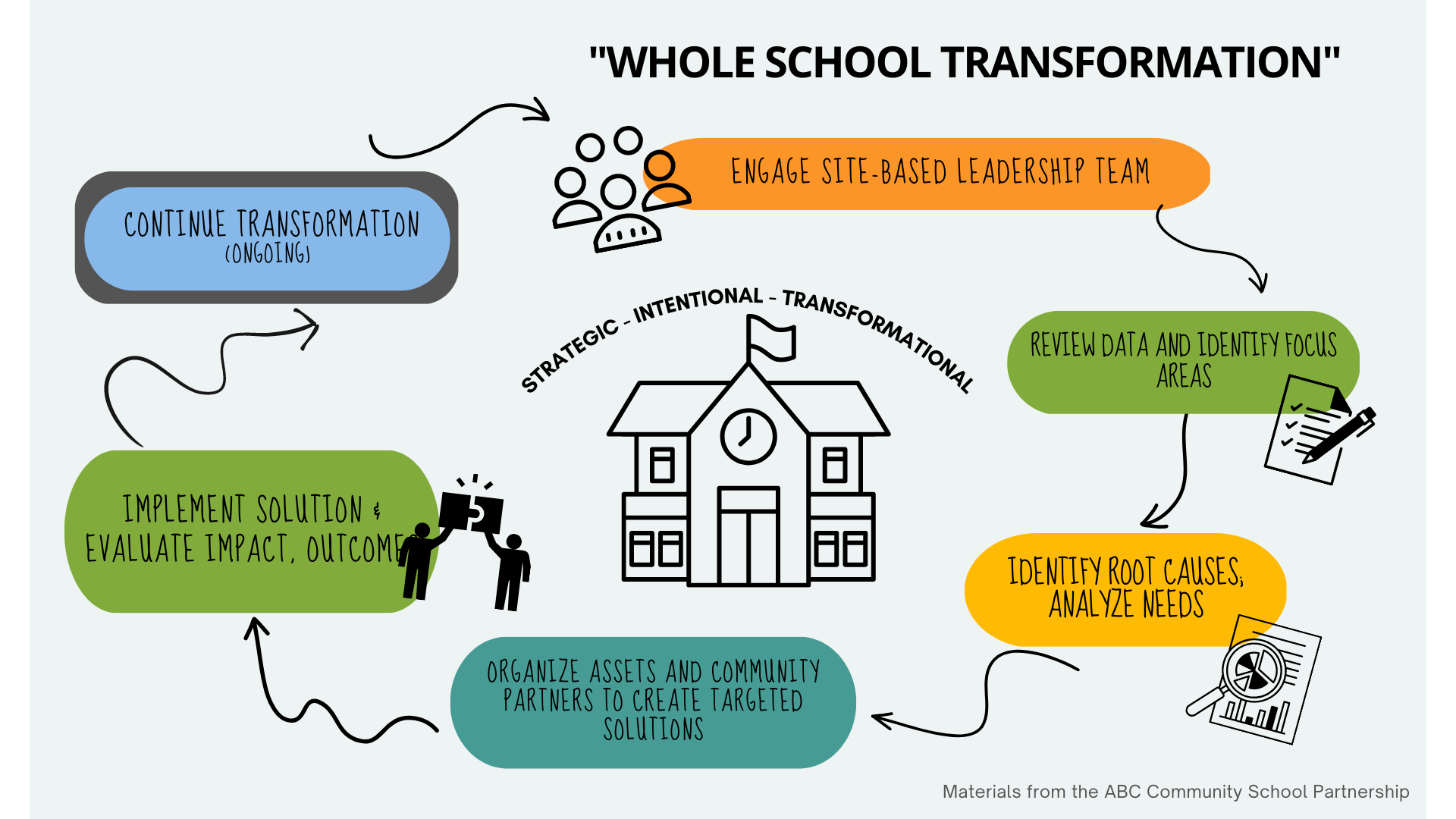The community school strategy is founded in collaborative leadership and executed by the school’s site-based leadership team which acts as the governing body of the school; includes the principal, community school coordinator, teachers and other key staff, families, students, and multiple community partners (invested and mutually beneficial); and shows documented indicators and outcomes of whole school transformation. The community school strategy consists of collecting, analyzing, and tracking qualitative and quantitative, new and historical data over time of the school and community (neighborhood and district); and using that data to inform the priorities of the school’s strategic plan with a detailed root cause analysis (that shows multiple root causes), a data-driven needs assessment report, and a school and community-based asset assessment map/report. The community school strategy is supported by a systemic and sustainable funding plan that involves blended, braided, and leveraged funding; and leveraging in-kind services and funding from community partners.

